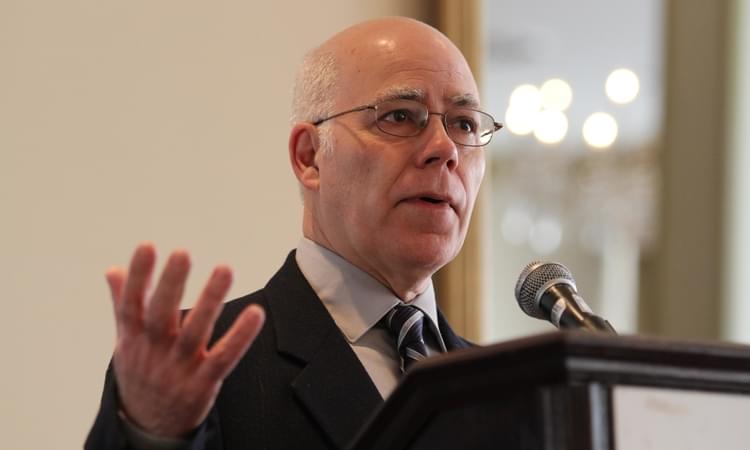Our Future Depends on Bridging Our Three Solitudes

Article by: DAVID COON
“Breaking down the barriers between our three solitudes calls for collective action. Without it, New Brunswick will fail to move forward.”-David Coon
As Green Party leader I have the wonderful opportunity to visit communities in every corner of our beautiful province. I like nothing better than listening to the concerns and dreams of New Brunswickers, and to their ideas for change. This helps inform my work to propose solutions, illuminate problem, and to hold the government’s feet to the fire on its work.
I am struck by two things. One, the priorities of government do not reflect the grassroots concerns of people and their communities. And two, the people of the First Nations, Acadians and the anglophone population represent three solitudes. The solution to the first dilemma is political, but breaking down the barriers between
our three solitudes calls for collective action. Without it, New Brunswick will fail to move forward.
These conclusions are contained in a fascinating paper published by UNB’s Margaret Conrad and Natalie Dubé, and their collaborators David Northrup from York and Keith Owre from the University of Saskatchewan in the first edition of the on-line Journal of New Brunswick Studies in 2010.
They point out that the seemingly mutually exclusive identities of First Nations, Acadians and anglophones of loyalist, Irish and Scots descent, were largely constructed in the eighteenth century, but continue to figure prominently in our politics . They urge us to think of ourselves more broadly, citing the challenges of today “that transcend our narrow historical identities . . .and demand new narratives about our past.” Their solution? Embrace the past as a shared experience, and tell our stories of achievements and failures as collective ones. I would add, that we need to take on a collective project, un project de société, where we truly can make history together.
Reconciliation with First Nations would be one such effort. This requires us to examine our collective past,recast our stories, and set a course for the future based on pursuing a right relationship with each other. It means facing some uncomfortable truths. It means confronting racism, and it means resolving the question of land and land-use that is respectful of aboriginal title.
Changing how elders live and receive care would be a transformative initiative for New Brunswick that would span our three solitudes. With the most rapidly aging population in the country we have the opportunity to become the Scandinavia of Canada when it comes to the place of seniors in our society, and the services available to them.
A decision to become largely self-sufficient in food would be another societal project that would necessarily bring us together. This would drive much needed rural development around the province as food production expanded, along with the businesses needed to support it. Producing far more of the food we consume would substantially diminish import of food, keeping that money circulating in our local economies to create work and business opportunities in New Brunswick. What better way to bridge our solitudes than sharing our knowledge and love of food. Perhaps a distinctly New Brunswick cuisine would be the result. Aiming to become the first Canadian province to be largely fueled and powered by green energy would also break down our solitudes.
Think of the cooperation needed to harness our ample renewable energy resources to heat our homes and buildings, power our electrical grid, and transport us. I can envision the collaborative design of eco-homes and buildings with modest energy needs, and of transportation systems well-adapted to our settlement patterns and climate.
However, we will only break-down our solitudes if these societal projects are based on bringing communities together, to share, and to collaborate, with the provincial government playing a supporting role rather than a domineering one. It’s exactly the kind of change our province so badly needs.